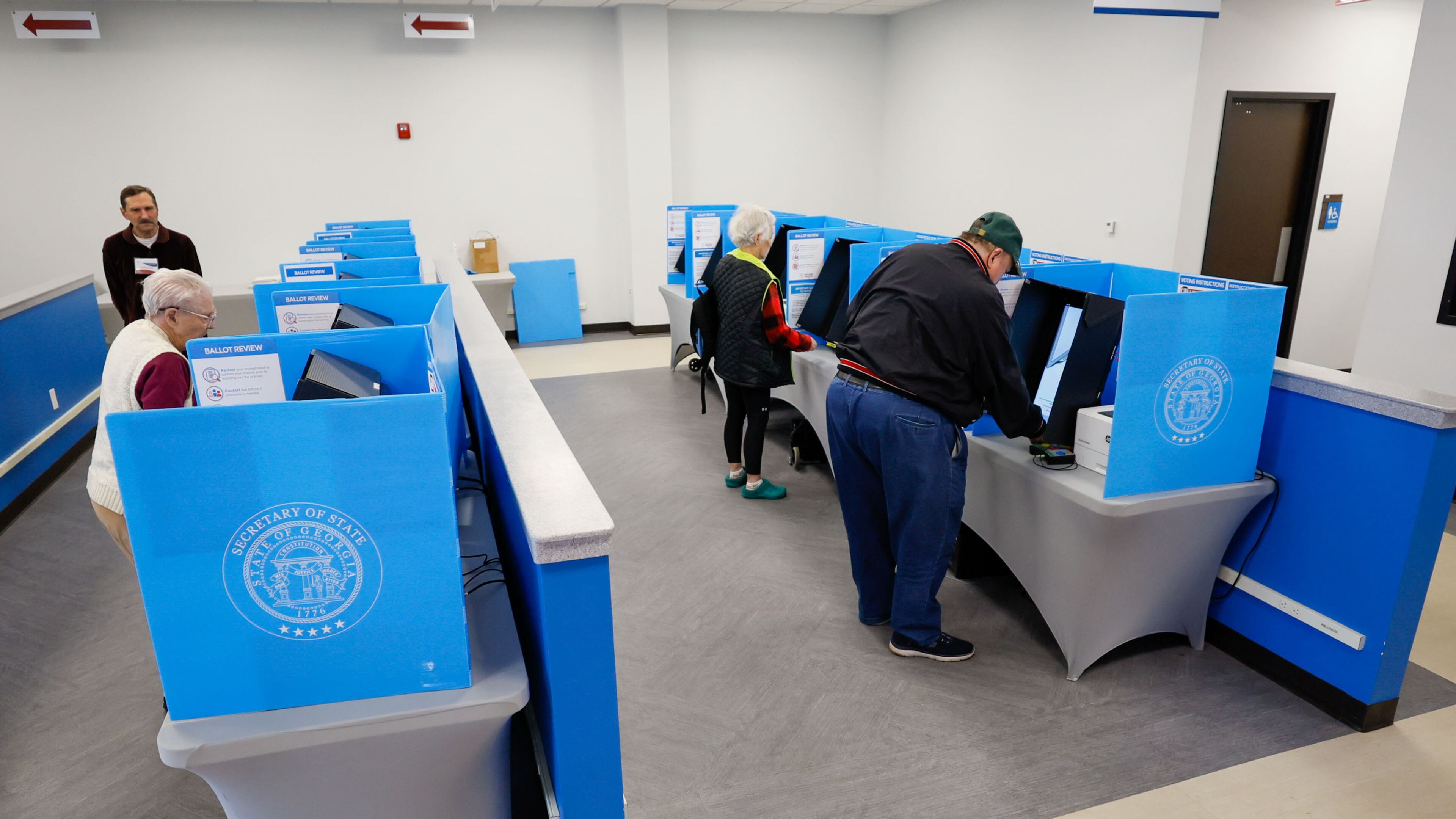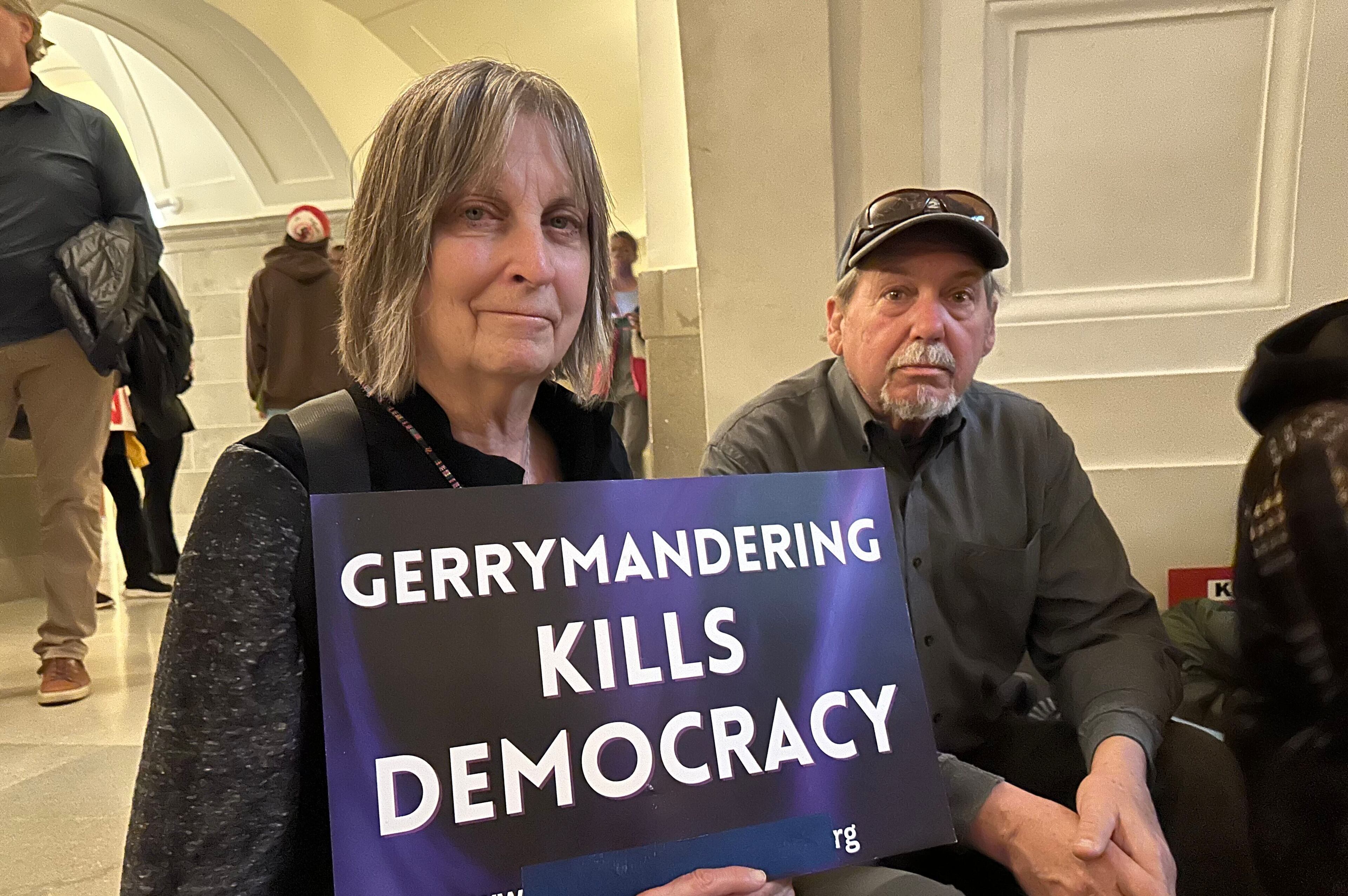Primary election day: What Georgia voters need to know

The Georgia primary on Tuesday will decide Democratic and Republican candidates who will face off in November, setting every race this year besides president.
All registered voters are eligible to participate in either party’s primary, or they can choose a nonpartisan ballot that only includes candidates seeking to become judges.
What’s on the ballot
Voters will pick candidates in races for Congress, the Supreme Court of Georgia, the General Assembly and local offices.
The winners of partisan primaries will advance to the general election in November along with the presidential contest between Democrat Joe Biden and Republican Donald Trump.
In some cases, the primary will effectively decide the winner in races where candidates do not face an opponent from another party, and in nonpartisan judicial races.
All 14 of Georgia’s congressional seats are up for reelection for two-year terms, including a crowded Republican race for an open seat in west Georgia to replace U.S. Rep. Drew Ferguson, who is retiring.
In a district southeast of Atlanta, six Democratic candidates are challenging incumbent U.S. Rep. David Scott. And in a redrawn west Atlanta district that includes parts of Cobb, Douglas, Fayette and Fulton counties, Democratic U.S. Rep. Lucy McBath is trying to return to office as she faces two rivals.
As for statewide races, the most closely watched contest is between state Supreme Court Justice Andrew Pinson, who was appointed by Republican Gov. Brian Kemp in 2022, and John Barrow, a former Democratic U.S. congressman who is campaigning on abortion rights.
All 236 seats in the Georgia General Assembly are also up for election. Republicans hold solid majorities in both chambers, but several seats could change hands.
District attorneys, superior court judges, sheriffs and county commissioners are also up for election.
How to vote
Neighborhood voting precincts are open from 7 a.m. to 7 p.m. throughout Georgia.
Voters can find their election day precincts and view sample ballots through the state’s My Voter Page at www.mvp.sos.ga.gov.
Georgia is an open primary state, meaning voters can choose whichever party’s primary they want to participate in.
All Georgia voters are required to show ID before they can cast a ballot.
Absentee ballots will only be counted if they’re received before polls close on Tuesday.
Voters who requested absentee ballots but didn’t return them in time can still vote in person, but they’ll have to fill out paperwork at the polls to cancel their absentee ballots. Absentee ballots can also be returned in person to election offices.
Low turnout expected
Hundreds of thousands of voters will likely show up on Tuesday, but election officials don’t expect many lines. Voters haven’t had to wait in recent elections.
During three weeks of early voting, over 513,000 people already participated in the primary, along with an additional 37,000 absentee voters.
But without statewide races for governor or the U.S. Senate on the ballot, turnout is lower so far than it was two years ago. During the 2022 primary, a total of 2 million voters participated, including nearly 800,000 early voters.
In races where no candidate receives a majority of the vote, runoffs will be held June 18.
Then the campaign for the general election begins in earnest, culminating in Election Day on Nov. 5.
Election 2024: The June runoff elections
WHEN IS THE RUNOFF? A number of races will need to be settled by a runoff on Tuesday, June 18. Early voting is June 10-14. Check your voting information, including ballot details at Georgia Secretary of State.
Learn more: Follow state and congressional election news, and the presidential race, on our Politics page. News about city and county elections is on the metro Atlanta page. Coverage and information will also be found in AJC print and ePaper editions.
Recent coverage
- Eight legislative runoff elections are on the ballot
- Congress: A tame race for Georgia’s 3rd gets a bit nastier as runoff nears
- Jan. 6 rioter in US House runoff storms off Atlanta debate stage
- DeKalb CEO candidates make final pitch at Atlanta Press Club debate
- Challengers unite to unseat Natalie Hall in Fulton commission runoff
- As Cobb County District 2 race goes to runoff, legal challenge awaits court date
- Rockdale commission chair candidate has a ‘D’ by her name, but Dems fear it means deception
- Candidates for office in Clayton County square off at forum



